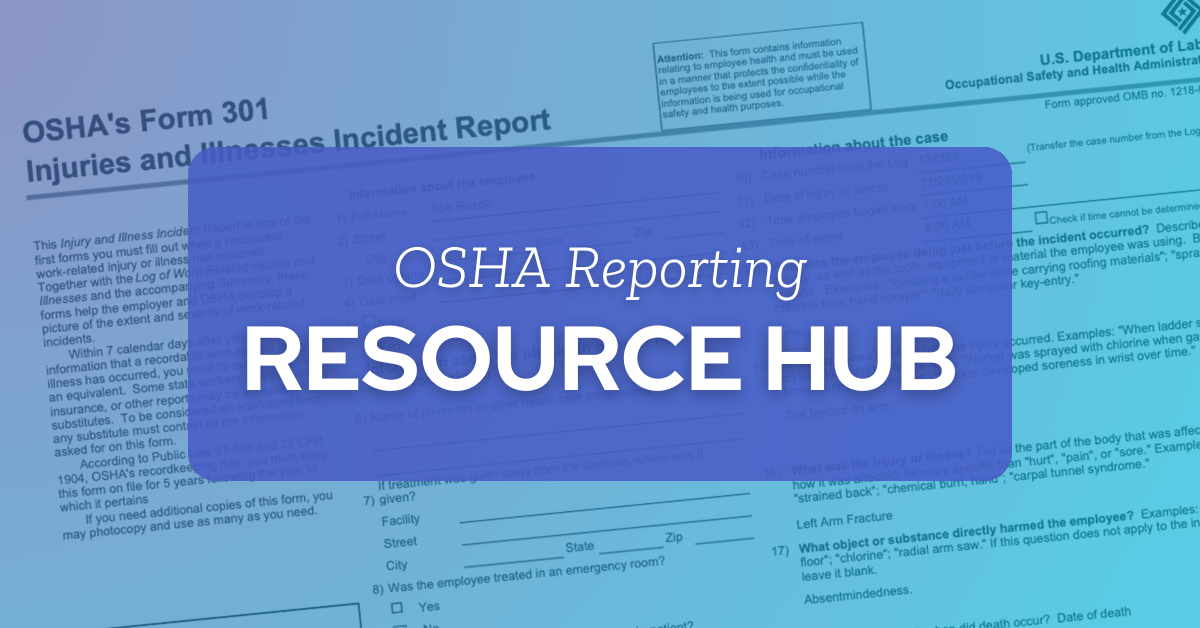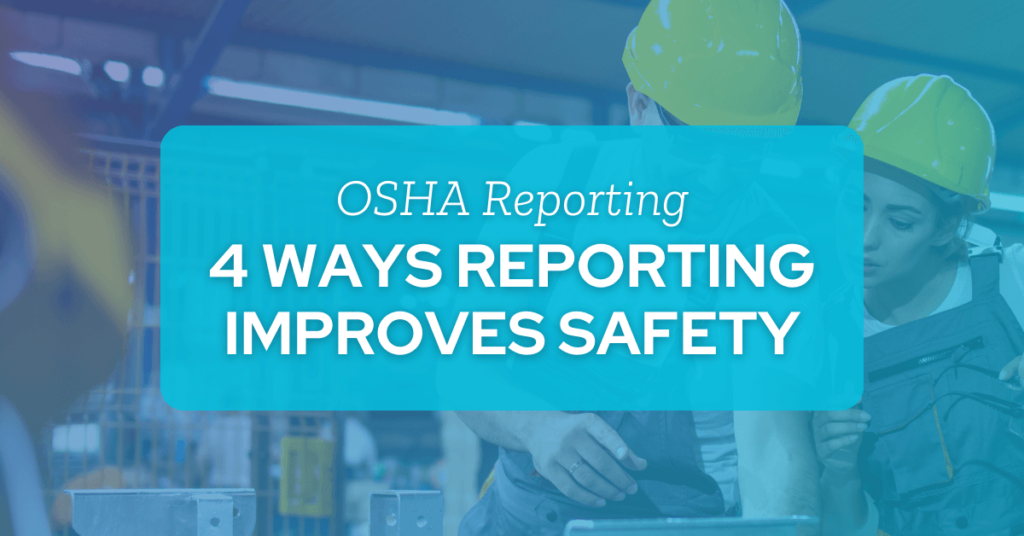While OSHA reporting and recordkeeping may not seem as urgent as an unconscious employee or a toppled forklift, the process is a vital part of environmental health and safety management.
In the immediate aftermath of a workplace injury, rarely is anyone’s first thought “we need to report this to the Occupational Health and Safety Administration.” Rather, initial considerations have to do with seeking medical attention, followed by rectifying the source of the incident. Then comes an assessment of the financial impact—workers’ compensation, lost productivity, potential legal claims, and so on.
And for many organizations, an incident that isn’t recorded and reported in a timely manner can bring significant expenses, as the minimum fine for a single late or missing report is $5,000.
4 Reasons OSHA Recordkeeping is Important
While regulatory penalties are certainly worth avoiding, there are plenty of other reasons to prioritize recordkeeping and reporting. Consider the following benefits identified by OSHA:
Check it out:
Learn everything you need to know about OSHA Reporting

Exemptions from OSHA Recordkeeping Requirements
While keeping records is almost always a good idea, it’s not actually required for every organization.
Small organizations are exempt from most OSHA recordkeeping requirements. If you have 10 or fewer employees at all times throughout the year, you don’t have to keep safety records. You don’t need to fill out OSHA 300, 301, and 300A forms if you choose not to.
Companies in low-hazard industries are partially exempt. If you operate in what OSHA deems a “low-hazard industry,” your organization must still comply with reporting claims, but you are not required to maintain OSHA 300 logs (although doing so remains a best practice). To determine whether your work environment is considered low-hazard, you’ll need to find out your North American Industry Classification System (NAICS) code, then check to see if your code shows up on OSHA’s listing of partially exempt industries. Keep in mind that we’re talking about partial exemptions. If OSHA or any other agency requests that you keep these forms—if the Bureau of Labor Statistics performs a random sampling, for example, and requires you to maintain forms throughout the year—then you’re still on the hook.
Exempted or not, all employers must report workplace-related fatalities and serious injuries. And if you do keep OSHA logs, be sure to maintain your records for at least 5 years.
So, do you really need to comply with OSHA recordkeeping requirements? For many companies, the answer is an unequivocal “yes.” For the rest, it’s a “yes, you probably should.” Regardless of whether your organization is exempt or not, recordkeeping is a best management practice. Plus, records help you prevent your workers’ compensation costs from spiking.
Deep Dive into OSHA Reporting Requirements
What’s recordable? What’s reportable? Am I exempt? How do I tell all the OSHA forms apart? Got lots of questions? We’ve got lots of answers in the OSHA Reporting Resource Hub.
KPA makes OSHA electronic reporting—and all elements of OSHA compliance and workforce health and safety—as easy as possible. Complete and file OSHA Forms 301, 300, and 300A quickly and accurately with KPA EHS Software.
Learn how we can save you time and money. Take a Test Drive >>
Related Content
Explore more comprehensive articles, specialized guides, and insightful interviews selected, offering fresh insights, data-driven analysis, and expert perspectives.

